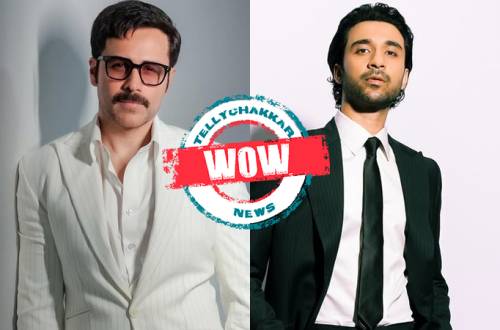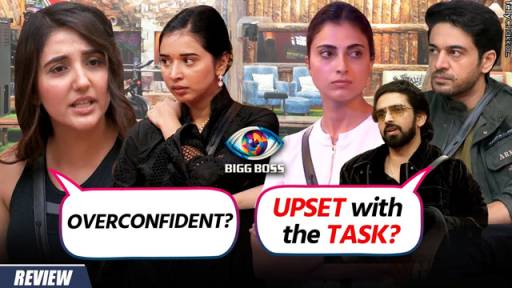
MUMBAI: For many fans of Shah Rukh Khan, September 7 cannot come fast enough. Looking at the reports of advance bookings from across India, Jawan, which was delayed from its initial June 2 release date, seems set to win audiences with its never-seen-before avatar(s) of SRK!
However, Shah Rukh’s bald look and mass dialogues are not the only highly anticipated aspects of Jawan– it also marks the Bollywood debut of ‘Lady Superstar’ Nayanthara, widely celebrated music director Anirudh Ravichander, and of course, one of Tamil cinema’s most successful directors from the last decade, Arun Kumar aka Atlee.
As the excitement over Jawan continues unabated, we take a deep dive into Atlee’s filmography so far, to understand why his treatment of SRK’s star persona will be different than anything we have seen so far:
Atlee started off his journey in Tamil cinema as an assistant director for the films Enthiran (2010) and Nanban (2012), both directed by renowned filmmaker Shankar. Enthiran starred Rajinikanth and Aishwarya Rai Bachchan, and emerged as the highest-grossing Indian film that year.
Nanban, a remake of Rajkumar Hirani’s 3 Idiots (2009), had Vijay reprising Aamir Khan’s character, and was also commercially successful.
In 2011, Atlee’s debut short film Mugaputhagam (‘Facebook’), starring Sivakarthikeyan, came out. It received positive response from users on various social media platforms, with many reviewers at the time seeing it as a film with a ‘strong message for the youth’.
It also has Atlee’s trademark trope of a crime or series of crimes being used to deliver the said ‘strong message’: in this case, it’s criminals catfishing unsuspected men by posing as women interested in romantic relationships.
The prevalence of this crime later makes way for the message that one shouldn’t be ableist, especially in matters of love… which obviously makes one think that if Atlee can go from a cruel crime to a heart-warming twist in a matter of 21 minutes and 22 seconds, just imagine the twists and turns he is capable of in a feature film!
Raja Rani (2013)
Atlee’s debut feature film Raja Rani, starring Nayanthara, Arya, Nazriya Nazim and Jai, borrowed heavily from Mani Ratnam’s classic Mouna Raagam (1986) as well as the Kannada film Milana (2007).
The film, which won multiple awards, dealt with a married couple in an arranged marriage set-up struggling to live with each other, and how their past affairs affect their lives in the present.
Unlike Atlee’s later films, Raja Rani was a romantic drama that focused on a rocky marriage. Its first half depicted how living with the ‘wrong’ person can negatively affect every part of one’s life, and how tough it is to survive in a relationship without any affection.
The second half goes on to show how the couple reconciles with their individual ‘love failures’ from the past and move on to fall in love with each other. It is a sweet and earnest contemporary take on Ratnam’s Mouna Raagam, and has left fans hoping for more romance movies from Atlee.
Raja Rani also marked a turning point in Nayanthara’s career: prior to this film, she had mostly done ‘glamour’ roles, which did not fully capture her acting skills and led to her being typecast.
However, post Raja Rani, audiences got to see her in better-written roles and as the lead character who commanded as much, if not more, screen time than her male counterparts.
Nayanthara would eventually go on to carve her niche in Tamil cinema with thrillers that positioned her as the protagonist, instead of the romantic interest.
The Vijay trilogy: Theri, Mersal and Bigil
With both Mugaputhagam and Raja Rani being strong love stories at their core, it came as a surprise when Atlee’s next film was announced as an “emotional action thriller”.
Starring ‘Thalapathy’ Vijay, Samantha Ruth Prabhu and Mahendran in the lead roles, Theri (2016) would change the trajectories of both Atlee’s and Vijay’s careers.
The latter was reeling from the failure of his ambitious fantasy film Puli (2015), and with Theri, he went back to the tried and tested formula of a mass film, first popularised by the Rajinikanth starrer Baashha (1995): of a man so gentle that it is borderline cowardly, who is revealed to have a dark and violent past in a flashback sequence that makes up almost half the film.
The film also successfully launched Vijay, who played a father, into the next phase of his career: he could now look and act his age, and play father roles.
In fact, Vijay would play a father in his other two films with Atlee as well, Mersal (2017) and Bigil (2019). There is already a lot of speculation about Shah Rukh playing double roles — of a father and son — in Jawan.
Theri’s plot was also influenced by Chatriyan (1990), which was written by Mani Ratnam. After the film’s success, Atlee came to be known as one of the most bankable directors in Tamil cinema.
The scale of his films kept getting bigger and bigger, both in terms of budget as well as what ‘wrong’ element in society he decided to take on through his film.
One reason for this was the lingering influence of Shankar– his ability to pull off larger-than-life characters and situations comes directly from his mentor, who has wowed audiences with films like Indian (1996), Anniyan (2005), and Sivaji: The Boss (2007).
The other is Atlee’s ability to rehash plot points and action sequences that worked in the past for other movies, which translates into playing it safe with his projects. Both Raja Rani and Theri came from films that were not just commercially successful, but also have lasting cultural relevance.
Into this mix, Atlee added the superstar personas of his leading actors, which served as both fan appeasement as well as a new way of presenting the actors which gave a fresh breath of air into their careers.
Mersal, like Theri, has a protagonist that one is supposed to root for while simultaneously being in awe of. From the beginning itself, it is clear that the protagonist is not any of the characters, but Vijay himself (who has a triple role).
The film has plot points scattered throughout its almost 3-hour runtime, and none actually feel satisfying because of the sheer volume of information and mass dialogues that are thrown around.
Logic of course goes for a toss, but fan worship steadily increases to the point where it is hard to differentiate if the film is selling its message (of eradicating medical mafia from society) or its hero as the messenger.
Mersal also heavily borrows from films that came before it– critics noted similarities to the MGR-starrers Kudiyirundha Koyil (1968) and Neerum Neruppum (1971), where he played dual roles, as well as Rajinikanth’s Moondru Mugam (1982), and Kamal Haasan’s Apoorva Sagodharargal (1989), in which they played triple roles.
Atlee and Vijay’s third and final (for now) collaboration, Bigil (2019), continued the trend of maximising the latter’s superstardom while still giving him room as an actor.
Vijay, this time in a dual role as father and son, delivered the social message of female empowerment through a women’s football team (the music video for the song ‘Singapenney’ by A R Rahman acts as a microcosm of the film in this regard).
However, the film was roundly criticised for making Vijay’s character the archetypal ‘male saviour’, and making the women’s stories part of his redemption arc.
The women are barely given individual voices in the film, including Nayanthara’s character, who is younger Vijay’s love interest.
The focus is solely on Vijay and his journey— women, who are supposedly being empowered in the film, are almost reduced to props facilitating his success.
After the trailer, we know that Jawan will be a revenge thriller done in the typical mass format– a genre Atlee has revisited throughout his career.
It also promises SRK in never-before-seen avatars, including the bald look (the actor recently said that this would be the ‘first and last time’ he will go bald for a role).
Even SRK’s punch dialogues (‘Bete ko haath lagane se pehele baap se baat kar’ being at the forefront) are generating massive interest among viewers.
Also read - WOW! Atlee to have a cameo in Shah Rukh Khan starrer Jawan
Atlee is also a huge SRK fan (Bigil was seen as an interpretation of Chak De! India) and has clearly put in effort to mould his stardom in a way that stands out. Come September 7, we’ll know more about how and where Jawan fits into Atlee’s filmography!
For more news and updates from the world of television, OTT and movies, stay tuned to TellyChakkar.
Credits - The Indian Express











Add new comment